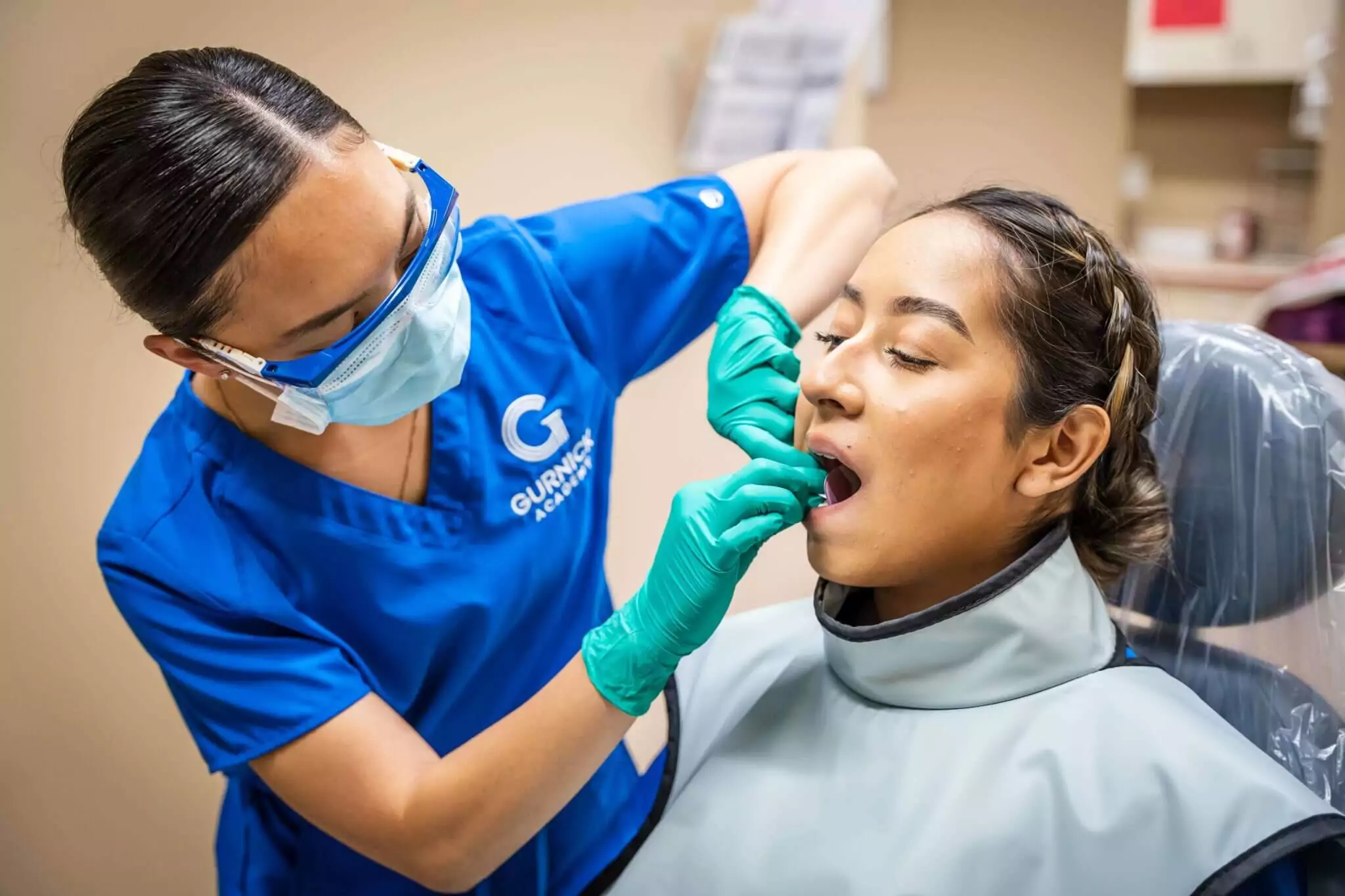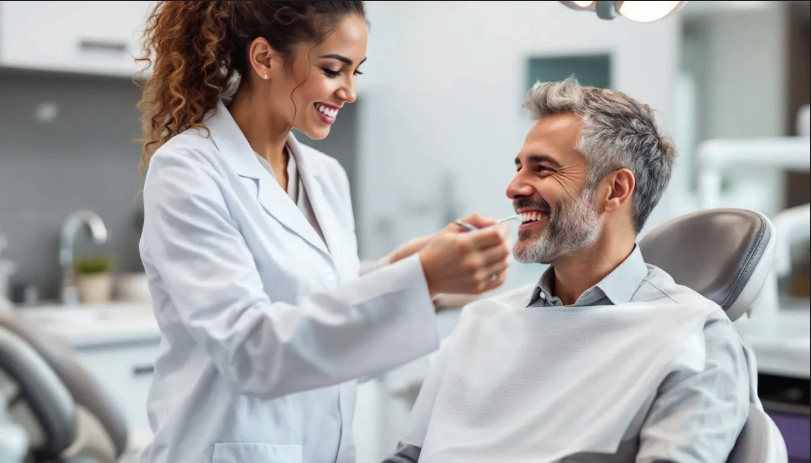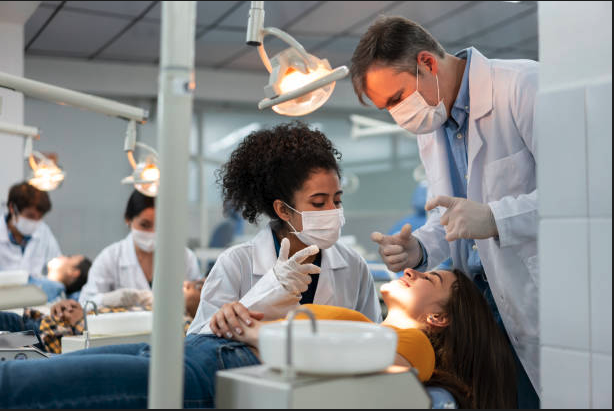Table of contents
Get Started with Kwikly
Get the latest updates, insights, and exclusive content delivered straight to your inbox.
Who This Is For
- Students exploring dental hygiene as a career and want a clear picture of the licensing process.
- Recent graduates from accredited dental hygiene programs preparing for their exams and license applications.
- Career changers considering dental hygiene and curious about the education, exams, and clinical requirements involved.
- Working dental assistants thinking about advancing their careers by pursuing a dental hygiene license.
Key Takeaways
- To become a dental hygienist, you've got to complete an accredited program - usually an associate or bachelor's degree - and meet the admission requirements they throw at you.
- Getting licensed means passing the National Board Dental Hygiene Examination and your state's clinical exams to show you know your stuff both in theory and practice.
- You'll need to keep up with continuing education to keep your license and stay current in the field - each state's got its own rules about this.
Getting your dental hygienist license means you'll need to finish an accredited program, pass some exams, and meet whatever your state wants you to do. In this guide, we're going to walk you through each step so you're ready to start your career as a dental hygienist.
Understanding the Role of a Dental Hygienist
Dental hygienists do a lot more than you might think. You'll be teaching patients, doing cleanings, preventing problems, and working alongside dentists. Your day-to-day work includes showing patients how to take care of their teeth, cleaning their teeth, and helping stop dental problems before they start. You'll need good communication skills, attention to detail, and steady hands. Plus, you've got to have the physical stamina to be on your feet and working with your hands all day.
But let's be real - this job isn't always easy. You'll deal with anxious patients who don't want to be there, and that takes patience and understanding.
Still, when you see how you're helping people keep their mouths healthy and feel better overall, it makes the tough days worth it. The mix of technical skills and caring for people is what makes dental hygienists such important parts of the healthcare team.
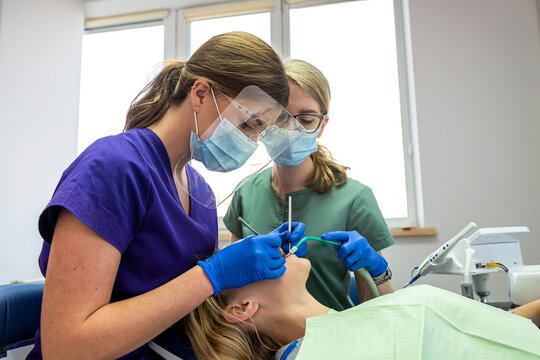
Essential Skills and Qualities for Dental Hygienists
To thrive in the dental hygiene profession, you’ll need more than just technical know-how—you’ll need a blend of essential skills and personal qualities that set you apart as a dental hygienist. Strong communication and interpersonal skills are a must, since you’ll be educating patients about oral health and making them feel comfortable during their visits. Attention to detail and manual dexterity are crucial for performing precise dental procedures and ensuring every aspect of patient care meets high standards.
Empathy and a genuine care for patients go a long way in building trust and providing compassionate dental care, especially when working with those who may be anxious or nervous. Critical thinking and problem-solving abilities help you assess oral health issues and develop effective care plans tailored to each patient’s needs.
Staying current in the field is also key—dental hygiene education doesn’t stop after graduation. Lifelong learning and a commitment to professional development keep you up-to-date with the latest advancements in dental hygiene practices and infection control protocols. Mastery of infection control measures is essential for protecting both patients and yourself, and a solid foundation in oral health principles ensures you’re always delivering the best care possible.
By developing these skills and qualities, you’ll be well-prepared to succeed as a dental hygienist and make a real difference in your patients’ dental and overall health.
Educational Pathways for Dental Hygienists
If you want to be a dental hygienist, you’ve got to go through an educational program that teaches you what you need to know. Most people get an associate or bachelor’s degree from an accredited program. An associate degree is pretty common and takes about two years, but a bachelor’s degree gives you more training and better career options - it just takes four years.
First, you’ve got to meet the requirements to get into these programs. You’ll need your high school diploma and some coursework in things like biology, chemistry, and math.
These programs mix general education with the dental hygiene stuff you really need to know. Let’s break down what you need to get in and why picking the right accredited program matters. The Commission on Dental Accreditation oversees the accreditation of dental hygiene schools, and attending a dental hygiene school accredited by this commission is necessary for meeting educational prerequisites and for eligibility to retake exams if needed.
Prerequisites and Admission Requirements
Before you can get into a dental hygiene program, you've got to check some boxes:
- Most programs want you to have your high school diploma.
- You'll need to finish prerequisite courses in subjects like anatomy and chemistry.
- These courses give you the foundation for what you'll learn in dental hygiene school.
- The curriculum usually includes both general education and the specialized stuff, so you get a well-rounded education.
You should also be ready to hand over your high school transcripts and whatever other paperwork they want as part of getting in. Meeting these requirements and following their rules is what gets you into a dental hygiene program.
Once you're in, you can start your journey to becoming a dental hygienist with the academic skills you need to succeed.
Accredited Dental Hygiene Programs
You want to pick a dental hygiene program that's accredited by the Commission on Dental Accreditation (CODA) - this makes sure it meets what your state requires for licensing. Accreditation means the program meets professional standards and gives you the quality education you need for a good career, and the American Dental Association recognizes it. These programs come in different shapes and sizes, offering both associate and bachelor's degree options depending on what you want to do with your career.
Accredited programs cover the important stuff you need to know about dental hygiene - oral health assessment, how to clean teeth properly, and teaching patients. Finishing an accredited dental hygiene program doesn't just prepare you for the National Board Dental Hygiene Examination, it sets you up for a solid career in dentistry.
When you're looking at your options, remember that accreditation is crucial for getting a comprehensive and credible dental hygiene education.
Clinical Experience and Training
The hands-on clinical experience is the meat and potatoes of dental hygiene education. It makes sure you’re ready to jump into the workforce with the practical skills you need to take care of patients. During your clinical rotations, you’ll work with real patients while experienced instructors watch over you, so you can use what you’ve learned in real situations. This supervised training is crucial for developing the skills you need - cleaning teeth, assessing patients, and taking X-rays.
You’ll also learn how to use dental software for managing patient records and charting, which is essential for modern dental practices. You’ll get to use different tools and pick up advanced skills like:
- Using ultrasonic devices to get rid of plaque and tartar
- Applying treatments like sealants and fluorides to protect against decay
- Doing oral cancer screenings
- Using digital imaging technologies
Some procedures or expanded functions, such as the administration of anesthesia or certain advanced techniques, may require board-approved training or authorization depending on your state’s regulations.
Your clinical training often means working with all kinds of different patients, which gets you ready for whatever practice environment you end up in. This comprehensive training makes sure that when you graduate, you’re ready to handle what the profession throws at you and give great care to your patients. The state clinical exams that test these practical skills are a big part of getting licensed.
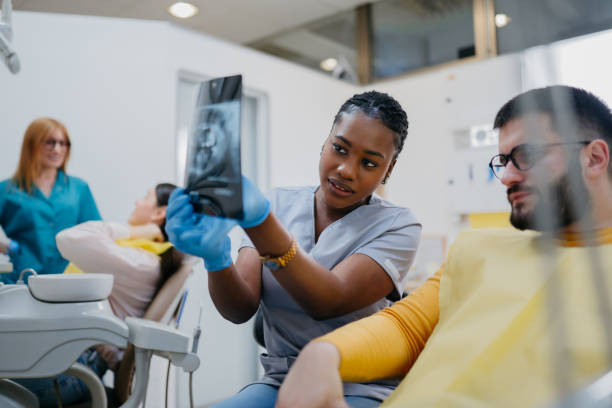
Examination Requirements for Licensure
To get your dental hygiene license, you’ve got to pass several exams that test both what you know and what you can do. The National Board Dental Hygiene Examination (NBDHE) is a big one - it tests the knowledge you need for safe and effective dental hygiene practice across the whole country. This exam makes sure dental hygienists meet the national standards you need for licensure.
You’ll also have to pass state clinical exams, where you actually perform procedures on patients while someone watches. These exams test your practical skills through direct observation, making sure you can provide quality care.
A passing score is required on both the written NBDHE and the state clinical exams to qualify for licensure. These exams are administered by official testing agencies and dental examiners, such as the American Board of Dental Examiners (ADEX) and the Commission on Dental Competency Assessments (CDCA). The Joint Commission oversees the National Board Dental Hygiene Examination and verifies exam scores for licensure and accommodations. It is important to obtain verification of your passing score directly from these organizations, as they play an authoritative role in the licensing process.
Both the NBDHE and state clinical exams are required steps for getting your dental hygiene license. Let’s get into more detail about these exams.
National Board Dental Hygiene Examination
The National Board Dental Hygiene Examination (NBDHE) is a comprehensive test that checks whether you know what you need to know for safe practice across the United States, and the American Board recognizes it. The exam covers things like oral health assessment, patient management, and preventive care. It's essential for determining whether you're competent and making sure dental hygienists have the knowledge they need to provide safe and effective care, including the national dental examinations.
Passing the NBDHE is a huge step in getting licensed because it shows you've met the national standards. This exam doesn't just test what you know in theory - it also reinforces how important it is to maintain high standards in dental hygiene practice.
Preparing for and passing the NBDHE is a big milestone on your way to becoming a licensed dental hygienist.
State Clinical Examinations
State clinical exams are designed to test your practical skills by watching you perform dental hygiene procedures on actual patients. These exams typically involve things like cleaning teeth, assessing patients, and applying preventive treatments. The goal is to make sure you can do these procedures safely and effectively in real situations.
Different states might have specific requirements and exam formats, so you'll want to check with your state dental board for the details. These clinical exams are crucial for licensure because they test whether you can actually provide quality dental care through dental competency assessments.
Passing these exams shows you've got the practical skills and you're ready to start working as a dental hygienist.
Applying for a Dental Hygiene License
The final step in becoming a dental hygienist is applying for your license. This process involves:
- Finishing an accredited program
- Passing the required exams, including the NBDHE and a state clinical exam
- Submitting your licensure application along with the paperwork and fees they want
- Getting your state licensure, which you’ve got to have
Each state has its own rules about dental hygiene practice, so you’ll want to check with your state dental board for the specific licensing information. The application process is different for each state but usually involves verifying your educational credentials, exam results, and making sure you comply with state regulations. The licensing process is overseen by the relevant department responsible for health professions, and applicants must comply with administrative rules that govern licensure, examination procedures, and application requirements.
Let’s break down what paperwork you need and how the application process works.
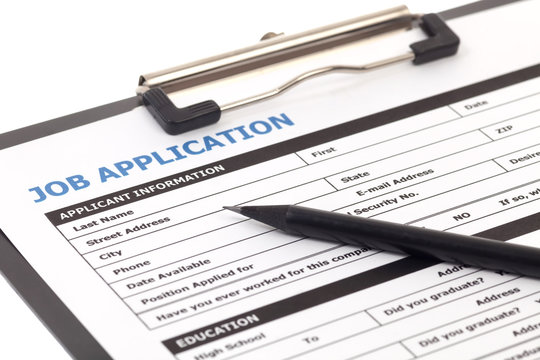
Required Documentation
To apply for your dental hygiene license, you’ll need to submit the following documents:
- A completed application form
- Proof you graduated from an accredited program
- Certification that you passed the required exams
- An authorization for release of information
- A background check packet - these are all required for your licensure application.
You’ve got to make sure all the required documents and application fee are submitted together so you don’t run into any delays in the online application process. To apply online, incomplete applications can become invalid after 180 days, which means you’d have to start over.
Including a processing fee with your application is essential for getting it reviewed and considered on time. Getting these documents ready and submitted properly is a crucial step in getting your dental hygiene license.
Application Process
The application process for your dental hygiene license involves several steps:
- Complete all the licensing requirements, including electronic fingerprinting and a background check.
- In states like Florida, you’ve got to make sure all licensing requirements are done for your application to get approved.
- Follow the specific requirements and rules set by your state dental board.
Incomplete applications in states like Iowa become invalid after 180 days, so you’d have to submit a new application. Make sure your application is complete with all the paperwork you need to avoid having it invalidated.
If you have questions about your application, need to verify your exam scores, or require testing accommodations, you may need to contact your state board or the relevant testing agencies. These organizations can be contacted directly for assistance, and contacting the appropriate agency in advance is important to ensure you meet all deadlines.
The licensing application process might seem complicated, but if you pay attention to details and follow what your state requires through the state board licensing authority, including getting your license number and new license, it’ll help make the licensing process smoother.
Continuing Education and License Renewal
Continuing education helps you keep your license and stay up-to-date on what's new in the field. You're required to get continuing education credits to renew your license. For example, in Iowa, you've got to complete 30 hours of continuing education every two years, including infection control and Iowa jurisprudence training.
You need CPR certification for license renewal, and you can get up to three hours of credit for completing a basic life support course provided by the American Heart Association. You'll also have to do mandatory reporter training every three years.
These continuing education requirements make sure you stay competent and informed. Keeping up with these requirements is crucial for maintaining your dental hygiene license and delivering quality care.
Career Opportunities for Licensed Dental Hygienists
Once you’re licensed, you’ve got lots of different career opportunities and ways to advance, including:
- Clinical settings
- Education
- Research
- Public health
Depending on their training and the needs of their patients, dental hygienists may also use other methods for preventive and therapeutic dental services.
The demand for dental hygienists is expected to create about 16,400 job openings every year, with a 9% employment growth rate from 2023 to 2033. This high demand shows how important dental hygienists are in the healthcare system.
Dental hygienists often make good money, with median earnings around $87,530 per year. Many dental hygienists like the flexibility of schedules, so you can work part-time or full-time based on what you prefer.
Getting a bachelor’s degree can boost your career opportunities in areas like education and research within the dental field. Let’s explore the different work environments and advanced roles available for dental hygienists.
Work Environments
You can work as a dental hygienist in lots of different settings, including:
- Private practices
- Hospitals
- Schools
- Community clinics
Most dental hygienists work in dental offices, often part-time. These settings give you opportunities to build strong relationships with patients and contribute to community health. For those interested in full-time opportunities, there are flexible temp positions with additional benefits available.
Advanced roles in research, education, and public health require more education and offer additional career paths. Developing your patient communication skills during your education helps you build trust and rapport.
The variety of work environments means you can find positions that match your interests and career goals.
Advanced Roles and Specializations
You can specialize in areas like:
- Periodontology, which lets you focus on treating gum diseases
- Pediatric dentistry, working with kids to promote lifelong oral health habits
- Community health
These specializations enhance your skills and knowledge, so you can provide more comprehensive care.
If you're interested in independent practice, you'll need to understand business operations, regulatory compliance, and patient management. Advanced roles and specializations don't just improve your professional growth - they also make a big difference in patient care and oral health outcomes.
These opportunities let you expand your impact within the dental field and pursue fulfilling career paths.
Job Outlook for Dental Hygienists
The future looks bright for dental hygienists, with the profession expected to see a 9% growth in employment from 2023 to 2033, according to the latest labor statistics. This growth is faster than the average for all occupations and is fueled by a greater focus on preventive dental care and an increasing demand for dental services across the country.
To take advantage of these opportunities, it’s important to start with the right education. Enrolling in an accredited dental hygiene program—one that’s accredited by the Commission on Dental Accreditation (CODA)—ensures you receive the training and credentials needed for a successful career. Most programs require a high school diploma and completion of prerequisite courses before you can begin your dental hygiene education.
After graduating from an accredited dental hygiene school, you’ll need to pass the National Board Dental Hygiene Examination and a clinical examination to qualify for your dental hygiene license. Once your license is issued, a wide range of career paths open up, from working in private dental offices and public health clinics to teaching in educational institutions. You can also choose to specialize in areas like pediatric dental hygiene or periodontal therapy, expanding your expertise and impact.
Continuing education is a key part of the profession, not only for license renewal but also for staying competent and informed about the latest developments in dental hygiene. With a strong educational foundation, a commitment to ongoing learning, and a dental hygiene license from an accredited program, you’ll be well-positioned to enjoy a rewarding and stable career in this essential health profession.

Benefits and Challenges of Being a Dental Hygienist
The dental hygiene profession offers plenty of rewards and challenges. You'll benefit from strong job growth prospects and the chance to positively impact your patients' oral health. Many people find the profession highly rewarding because you can build strong patient relationships and help prevent serious health issues.
But dental hygienists also face various workplace hazards, like exposure to infectious diseases, ergonomic risks, and issues related to U.S. dental tax and labor law compliance:
- Exposure to infectious diseases
- Emotional demands of patient care that can lead to burnout
- Pressure to maintain a high level of attention to detail
- Physical demands of the job, including repetitive tasks and long hours of standing, which can lead to discomfort and impact your well-being.
While the profession includes rewarding patient interactions and good job prospects, it also involves dealing with stress and workplace challenges.
Rewards
Many dental hygienists find their profession to be highly rewarding. You'll appreciate the opportunity to build strong patient relationships and make a real difference in people's lives. The profession lets you help prevent serious health issues and improve community health. You'll often feel fulfilled knowing you contribute to your patients' overall well-being and oral health.
The impact you can have extends beyond individual patients to the broader community. By promoting oral health education and preventive care, you play a crucial role in public health initiatives. For many practitioners, these rewards make the challenges of the profession worth it.
Challenges
You'll often face emotional challenges from patient interactions and managing dental anxiety. The job's physical demands, including repetitive tasks and long hours of standing, can lead to discomfort and long-term physical issues. These challenges can really impact your job satisfaction and health.
Also, maintaining a high level of attention to detail can be stressful and lead to burnout. Despite these challenges, the profession remains rewarding for those who are passionate about patient care and oral health.
Finding a balance and using self-care strategies are crucial for managing these challenges and maintaining a fulfilling career.
Summary
In summary, becoming a dental hygienist involves a well-defined educational path, hands-on clinical training, and passing tough exams. Being a dental hygienist is multifaceted - you need a blend of technical skills and compassionate care. While the profession offers numerous rewards, including strong job growth prospects and the ability to make a positive impact on patients' lives, it also comes with its own set of challenges.
As you consider this career path, remember how important it is to choose an accredited program, gain practical experience, and stay updated through continuing education. The journey to getting your dental hygiene license is demanding but ultimately rewarding. With dedication and passion, you can thrive in this essential healthcare profession, contributing to your community's well-being and enjoying a fulfilling career.
Frequently Asked Questions
What are the educational requirements to become a dental hygienist?
To become a dental hygienist, you've got to complete an accredited associate or bachelor's degree program, along with having your high school diploma and relevant coursework in biology, chemistry, and mathematics. Meeting these educational requirements is essential for pursuing a career in this field.
What exams are required to obtain a dental hygiene license?
To get your dental hygiene license, you'll have to pass the National Board Dental Hygiene Examination (NBDHE) and a state clinical examination, which test both what you know and what you can actually do.
What types of work environments are available for dental hygienists?
You've got lots of work environment options as a dental hygienist, including private practices, hospitals, schools, and community clinics. Plus, there are opportunities in research, education, and public health if you pursue advanced education.
What are the continuing education requirements for dental hygienists?
You're required to complete continuing education credits for license renewal, and the requirements are different for each state - for instance, Iowa requires 30 hours every two years, including specific training in infection control and state jurisprudence. You'll want to stay informed about your state's regulations to keep your license.
What are some challenges faced by dental hygienists?
You'll face emotional challenges from patient interactions and managing dental anxiety, along with physical demands that can lead to discomfort from repetitive tasks and long hours of standing. Addressing these issues is crucial for your well-being as a dental professional.




